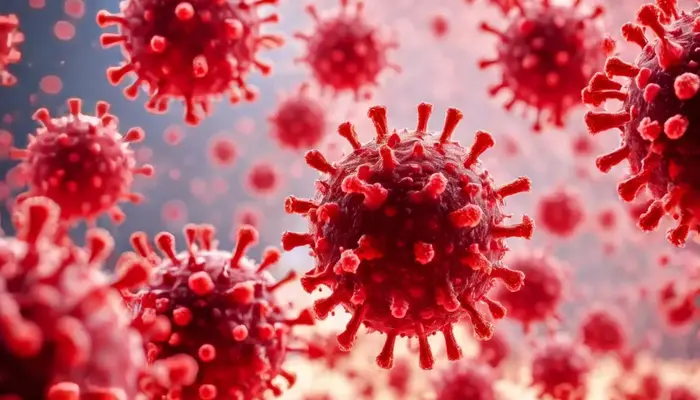Understanding Long COVID
The researchers focused on a critical finding: individuals experiencing long COVID symptoms are twice as likely to have SARS-CoV-2 proteins in their blood compared to those who quickly recovered. The study involved analyzing blood samples from over 700 participants, including those from the RECOVER Initiative, sponsored by the National Institutes of Health (NIH).
Dr. Zoe Swank, a postdoctoral research fellow at Brigham and Women’s Hospital, emphasized that lingering symptoms may stem from a lasting viral infection. “If we can identify a subset of people who have persistent viral symptoms due to a reservoir of virus in the body, we may treat them with antivirals,” she explained.
Surprising Discoveries
The research revealed that approximately 43% of individuals with long COVID symptoms tested positive for viral proteins even 14 months after their initial positive COVID test. In contrast, only 21% of individuals who did not develop long COVID exhibited these biomarkers. Dr. David Walt, a professor of pathology at Brigham and Women’s Hospital, stated, “This finding suggests there is likely more than one cause of long COVID.” He pointed out that the virus might damage the immune system, leading to immune dysfunction that persists after the virus is cleared.
Exploring Uncharted Territory
Long COVID research resembles navigating uncharted waters, with new insights emerging frequently. “There is still a lot that we don’t know about how this virus affects people,” said Dr. David C. Goff, director of the Division of Cardiovascular Sciences at the National Heart, Lung, and Blood Institute (NHLBI). He highlighted the importance of such studies in understanding the mechanisms behind long COVID, which could help identify targets for treatment.
The researchers also developed a SARS-CoV-2 blood test for the national RECOVER-VITAL study. This research aims to assess the impact of antiviral treatment on long COVID recovery, emphasizing the instrumental role of this test.
Read: Medical Expert Debunks Common Breast Cancer Myths
The Immune System’s Role
Another key area of focus is the immune system’s contribution to long COVID symptoms. Researchers are investigating how an overactive or dysfunctional immune response interacts with the virus. Understanding this relationship may lead to targeted therapeutic interventions to regulate the immune response effectively.
Looking Ahead
While the research into long COVID remains complex, it is paving the way for future discoveries. The emphasis on the presence of viral proteins and potential immune dysfunction provides a solid foundation for further exploration. Researchers remain optimistic that they will gradually piece together this puzzle, moving toward effective treatments.
Lessons from Other Viruses
Dr. Swank noted that the persistent nature of COVID-19 is not unique. Other viruses, such as Ebola and Zika, have been linked to similar post-acute syndromes. Although we have not yet triumphed over COVID-19, each new discovery brings us closer to victory. The mystery surrounding long COVID is slowly unraveling. Millions worldwide continue to endure the challenges of long COVID, and we hope this uninvited guest leaves soon.
Follow us on Google News, Instagram, YouTube, Facebook,Whats App, and TikTok for latest updates













